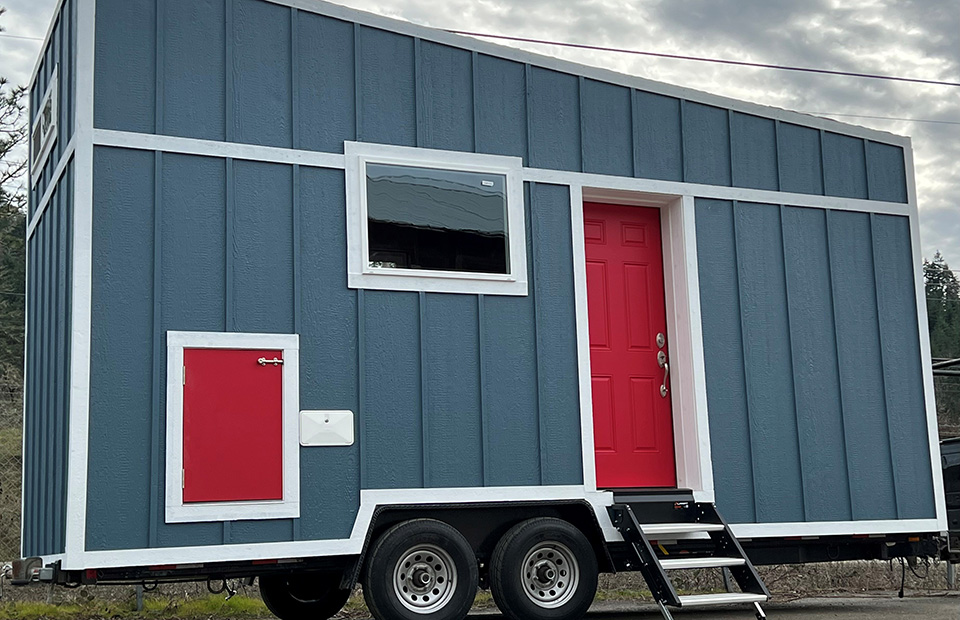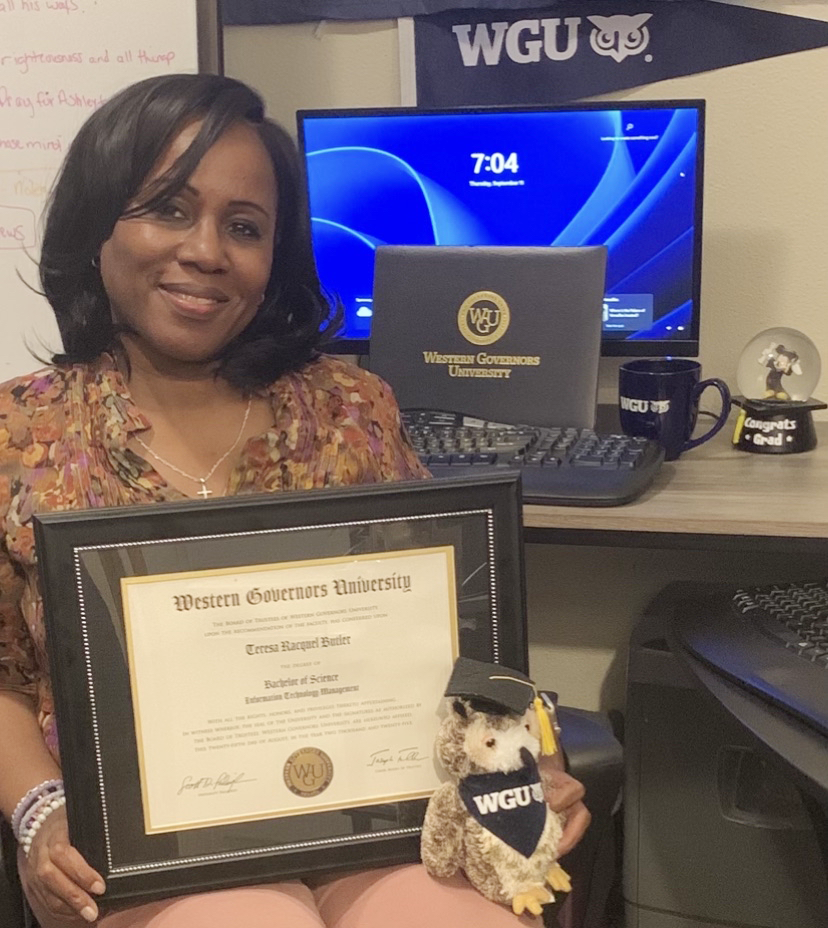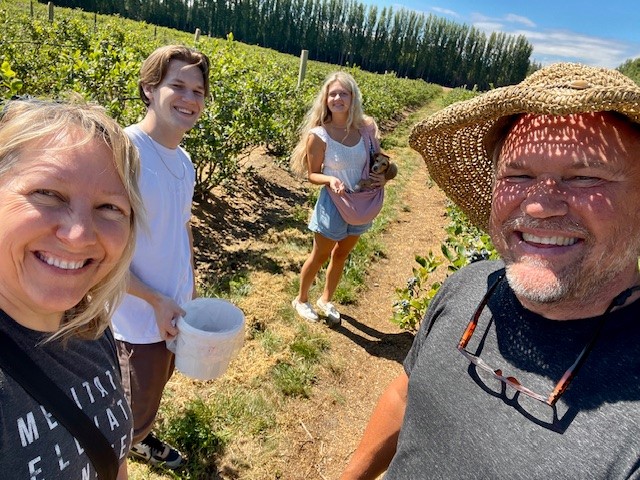
The Alpha nears completion in Oregon. In 2020, the U.S. government said more than 37,000 veterans lacked a permanent place to live, and another 1.4 million were at risk of homelessness.
As manager of our Giving Fund, Anne Leyva reviews hundreds, if not thousands, of requests for donations every year. And while nearly all support worthy causes, one recent request stood out for its close alignment with two of our 3 by 30 Positive Impact Areas: providing sustainable products for affordable, quality housing, and supporting rural communities.
The request came from a small, fast-growing nonprofit based in Oregon: Operation Tiny Home. The organization’s mission is to help those struggling with severe housing instability to maintain a life of dignity by providing custom, high-quality tiny housing solutions.
Typically around 500 square feet and mounted on mobile trailers, tiny homes can be built quickly and affordably. They can also be easily moved to locations where they’re needed, including regions recovering from natural disasters.
“Tiny homes aren’t for everybody,” says Gabrielle Rapport, Operation Tiny Home’s founder and executive director. “But for many, they provide the ideal combination of freedom and security.”
One of these groups is U.S. veterans. An estimated 37,000 struggle with homelessness, and another 1.4 million are at risk of homelessness, often due to job insecurity and mental health struggles.
In fact, Operation Tiny Home not only helps veterans find micro-housing solutions but also teaches them homebuilding skills.
A PERFECT MATCH
“I was so impressed, I picked up the phone and called Gabrielle,” Anne says. “I wanted to learn more about Operation Tiny Home, talk about the request and see if we could work something out.”
After her conservation, Anne reached out to Wood Products business leaders to clear the product donation.
Gabrielle and Operation Tiny Home had teamed up with Mattersville, a nonprofit in Sedalia, Colorado, that empowers former service members to become self-reliant and successfully reintegrate into civilian life. Together, they envisioned the Alpha, a brand-new type of tiny home specifically for veterans with service animals.
Construction just wrapped up on the Alpha — built with wood and other building materials donated by our Denver distribution center and one of our top customers, UFP Industries.
“Homelessness, including veteran homelessness, is a big concern here in Colorado,” says Steve Godowski, a dealer sales representative at our Denver distribution center who aided with the donation. “I’m proud to work for a company so willing to support innovative solutions like those offered by Operation Tiny Home, and to partner with a great customer like UFP to make it happen.”
TOP OF THE PACK
The Alpha is a tiny home on wheels, about 20 feet long with a few hundred square feet of space. What makes it stand out from the pack are its doggie doors.
“We worked with Mattersville to design their dream tiny home,” Gabrielle says. “They have a wolf rescue program where veterans work with rescued domesticated wolves, so the Alpha includes two kennels with doors both inside and outside, and an external dog wash area with running water. Many veterans dealing with trauma or post-traumatic stress are paired with service animals, so we know this is a design that’s really needed and can make a huge impact.”
On March 24, Operation Tiny Homes presented Mattersville with the keys to the first Alpha house. Next it will go on a national tour to help raise awareness of homelessness among military veterans and show how tiny houses can serve as affordable, practical solutions. After its “tour of duty,” it will become a home for a veteran served by Mattersville.
“Tiny homes are a sustainable, affordable housing option that can help address veteran homelessness, especially in rural communities,” Anne says. “We’re excited about their potential to make a difference in the communities where Weyerhaeuser employees live, work and play.”
LOOKING TOWARD THE FUTURE
The initial Colorado donation has led to an ongoing dialog between Anne and Operation Tiny Home to find more ways to work together.
“From tiny homes for fire-damaged communities in Oregon to veterans, Native Americans and other marginalized groups, there’s a tremendous need to address homelessness in innovative ways,” Anne says. “We’re looking forward to partnering with Operation Tiny Homes to do so.”
Operation Tiny Home shares photos of the Alpha under construction on social media. Many veterans also grapple with mental health issues, including post-traumatic stress, which can hamper the ability to find long-term, gainful employment. To address this issue, Operation Tiny Home not only builds housing but also teaches veterans homebuilding skills.
TINY TALK, BIG IDEAS
When our friends at Operation Tiny Home invited us to take part in one of its recent podcasts, Ara Erickson, our vice president of Corporate Sustainability, was happy to chat with hosts Zack Giffin and John Weisbarth.
If you’ve seen “Tiny House Nation” on TV (currently streaming on Netflix in the U.S.), you’ll recognize Zack and John. Both are big advocates for the tiny home movement, and of Operation Tiny Home’s mission to address homelessness through sustainable, affordable micro-housing solutions.
During the podcast, they were especially curious about Weyerhaeuser and our 3 by 30 sustainability ambitions. Ara talked about how our forest management practices combat climate change, our commitment to efficiently making sustainable materials to build homes, and how we support the rural communities where we live and work.
Below are some highlights with approximate timestamps.
- 2:52—Ara discusses the size and scope of Weyerhaeuser’s operations in North America. “Anywhere you go where you might see a piece of wood, we might have something to do with it.”
- 5:30—“What do you do, mommy, at work?” Ara explains sustainability in terms her young son can understand.
- 6:09—Forests and wood products are a “double win for climate change,” Ara says.
- 7:32—Carbon sequestration is our “climate change superpower.”
- 10:08—Ara describes our commitment to efficiently using forests and forest materials, from trees to manufacturing to the job site.
- 14:14—We’re constantly looking for ways to help builders reduce wood waste, including working with dealers pre-cut and pre-package lumber.
- 20:41—Working with government officials to address climate change.
- 25:03—How responsible clearcutting can reduce forest impacts.
- 30:25—Our collaboration with Operation Tiny Home. “There was this amazing moment of: Is there anything more important than providing housing?”

